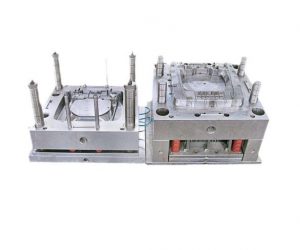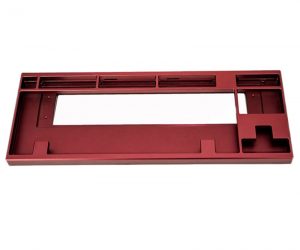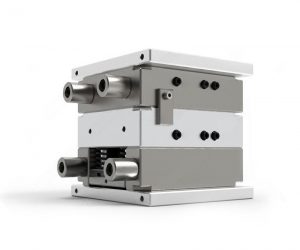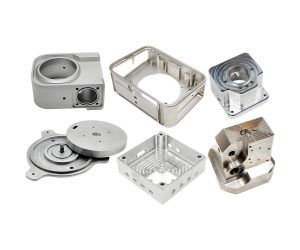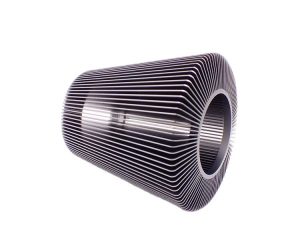Short-run CNC machining is an essential service for businesses that require small quantities of parts with high precision. It offers numerous advantages, including reduced lead times, lower costs for low-volume production, and the ability to quickly iterate designs before full-scale production. By leveraging advanced CNC technology, manufacturers can produce complex parts efficiently while maintaining consistent quality. Whether for prototyping, custom manufacturing, or small-scale production runs, short-run CNC machining provides a valuable solution for a range of industries.
Overview of Short-Run CNC Machining
Short-run machining is a manufacturing process that leverages Computer Numerical Control (CNC) technology to produce small quantities of parts with high precision. Unlike mass production, which focuses on large-scale output, short-run machining is tailored for projects with lower production volumes, offering a faster and more economical solution for specific needs. This approach is often more cost-effective and time-efficient for smaller batches, as it minimizes setup time and reduces inventory costs compared to long-run manufacturing.
Applications of Short-Run Machining
Short-run CNC machining is widely used in various scenarios such as prototyping, custom manufacturing, and design validation. It allows manufacturers to produce limited quantities of parts, enabling quick iteration and testing of product designs before committing to large-scale production. This flexibility helps businesses refine their products and gauge market demand without committing substantial resources, reducing both financial and operational risk.
Additionally, short-run machining enhances production flexibility. Manufacturers can swiftly adjust to changing market conditions or customer demands, ensuring that production schedules align with current requirements. This method also helps manage inventory more effectively, as only the required number of parts is produced, cutting down on excess stock and storage costs.
In essence, short-run CNC machining provides an efficient, adaptable solution for manufacturers dealing with low-volume production runs and specialized requirements. It optimizes cost management, accelerates production timelines, and improves the ability to meet customer needs.
CNC Machining Services: Precision and Flexibility
What Are CNC Machining Services?
CNC machining refers to a process where automated machines, controlled by computer programs, perform various machining operations such as milling, turning, drilling, and cutting. These machines offer high precision and repeatability, making them ideal for producing complex parts with tight tolerances. The versatility of CNC machines allows them to handle a wide range of materials—from metals like steel and aluminum to plastics and composites—making CNC machining applicable in diverse industries including aerospace, automotive, and medical devices.
One of the key advantages of CNC machining is its ability to produce parts quickly and consistently, ensuring high-quality results in less time. Moreover, CNC machines can handle intricate geometries, making them indispensable for producing complex components that would be difficult or time-consuming to create using traditional methods.
Factors Affecting CNC Machining Costs
The cost of CNC machining depends on several factors, including the complexity of the part design, the material selected, the quantity required, and any additional post-machining processes (e.g., surface finishing). Short-run machining typically involves higher setup costs compared to mass production due to the fixed nature of setup time, which is distributed over a smaller number of parts. However, short-run CNC machining can still be economically viable for low-volume production because it reduces material waste, minimizes machining time, and decreases inventory management costs.
For a more accurate cost estimate, it’s advisable to consult with a CNC machining service provider, providing them with detailed specifications of the project.
Short-Run CNC Machining Services: Key Advantages
Why Is Short-Run CNC Machining Important in Manufacturing?
Short-run CNC machining offers several significant benefits for manufacturers, particularly when low-volume production is required or when prototyping is essential. Traditional manufacturing processes might be too costly or time-consuming for smaller batches, but short-run CNC machining provides a flexible, cost-effective alternative. This process ensures that businesses can meet their specific production needs quickly, all while maintaining high levels of accuracy and product consistency.
Key advantages include:
- Precision: CNC machines deliver highly accurate parts with tight tolerances, thanks to advanced programming and automated controls.
- Speed: Short-run CNC machining allows for faster production cycles compared to traditional methods, reducing lead times.
- Reduced Setup Costs: While setup costs can be higher for small batches, short-run CNC machining typically requires less tooling and setup than traditional manufacturing methods.
Overall, short-run CNC machining is an indispensable service for modern manufacturers who require flexibility, quality, and speed, particularly in industries that demand rapid prototyping and custom solutions.
Types of Short-Run CNC Machining Services
- CNC Turning
CNC turning is a process where a rotating workpiece is cut by a stationary tool to create cylindrical parts with precise diameters and lengths. This technique is particularly effective for producing round components such as shafts, valves, and fittings. It’s an ideal choice for small batches that require high precision. - CNC Milling
CNC milling involves using rotary cutters to remove material from a solid workpiece. It’s well-suited for creating parts with intricate shapes and features, such as gears, brackets, and enclosures with specific grooves or holes. 5-axis milling machines offer even greater flexibility, allowing manufacturers to create highly complex geometries that would be difficult to achieve with traditional machinery. - CNC Drilling
CNC drilling is used to create round holes in materials with high accuracy. Drill bits are controlled by a CNC system that ensures consistent hole placement and depth, making it ideal for projects requiring precise hole patterns or high-volume perforation.
Materials Used in Short-Run CNC Machining
1. Ferrous Metals
Common ferrous materials used in CNC machining include steel, iron, and stainless steel. These metals are known for their strength and durability, making them ideal for applications requiring high toughness and wear resistance. Stainless steel, in particular, offers excellent corrosion resistance and thermal conductivity.
2. Non-Ferrous Metals
Materials like aluminum, copper alloys, brass alloys, and titanium alloys are popular choices for CNC machining due to their lighter weight and better machinability compared to ferrous metals. These materials are commonly used in industries like aerospace and automotive, where strength-to-weight ratios are crucial.
3. Plastics
Plastics such as ABS (Acrylonitrile Butadiene Styrene), Polycarbonate (PC), and Nylon (PA) are often selected for parts where weight reduction is important or where specific chemical properties are required. Plastics are also easier to machine and often cost less than metals.
4. Other Materials
While less common, materials such as wood composites, foam, and advanced ceramics can also be machined using CNC techniques. These materials often require specialized tooling and machine settings but can offer unique properties for niche applications.
Designing for Short-Run CNC Machining
Guidelines for Machinability and Tolerances
Designing parts for short-run CNC machining requires careful consideration of the machinability of the chosen materials. Materials like aluminum alloys are easier to machine, while harder metals can cause excessive wear on tools, increasing production costs. To optimize the machining process:
- Choose materials with appropriate hardness for the intended application.
- Set realistic tolerances—design parts with tolerances that are achievable with the chosen machining process to avoid unnecessary rework.
- Ensure that fixture and tooling designs support accurate and repeatable production by properly positioning parts and reducing vibration.
By following these guidelines, manufacturers can enhance the efficiency of short-run CNC machining and ensure high-quality outcomes with minimal waste.
Quality Control and Assurance
Ensuring High Standards
Quality control is critical in short-run CNC machining to ensure that parts meet precise specifications and perform as required. Manufacturers use tools like Coordinate Measuring Machines (CMMs) to check the dimensions of machined parts. Visual inspections are also conducted to detect any surface defects.
Additionally, manufacturers may hold certifications like ISO 9001:2015, which demonstrates a commitment to maintaining quality standards throughout the production process. Adopting robust quality assurance systems ensures that each part meets customer expectations and regulatory requirements.
